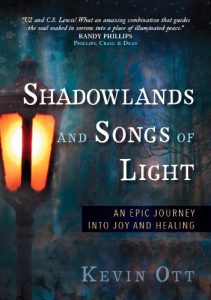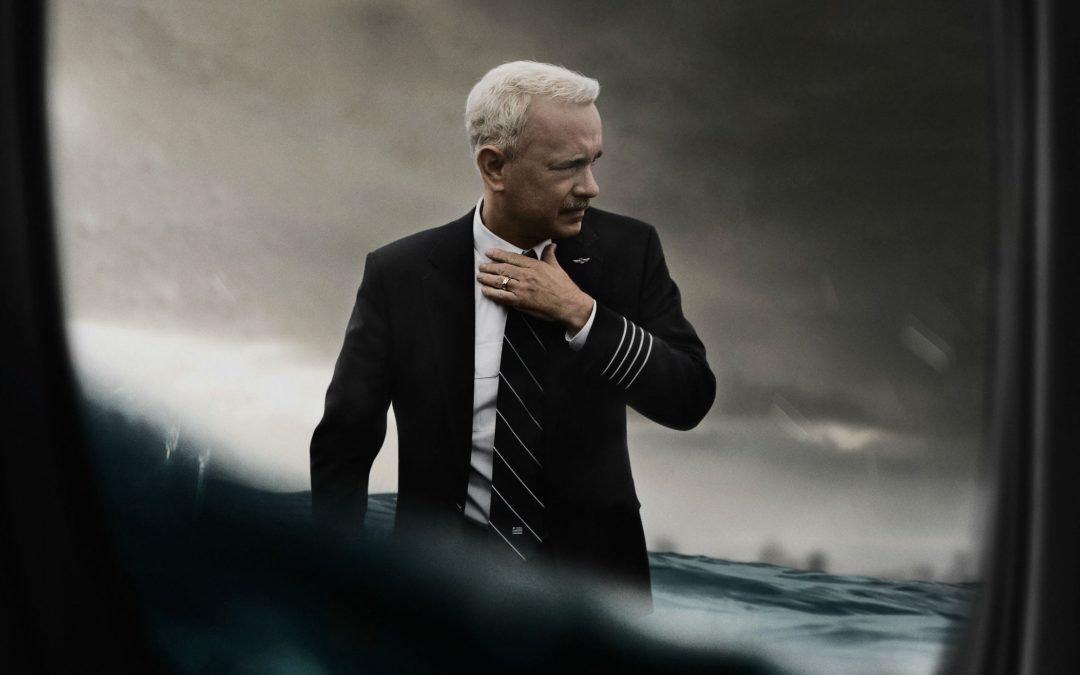 [Parent’s Content Advisory at bottom of review.]
[Parent’s Content Advisory at bottom of review.]
“Sully” tells the true story of Capt. Chesley ‘Sully’ Sullenberger, who, with his co-pilot Jeff Skiles and crew, landed an airliner on the Hudson River in January 2009 during an emergency and saved everyone on board. The remarkable event has already captivated the world when the story filled headlines seven years ago.
The story is about to captivate the world again with the release of “Sully,” a superbly crafted film helmed by Clint Eastwood (“American Sniper”), written by Todd Komarnicki (“Perfect Stranger”), and starring Tom Hanks (“Bridge of Spies”), Aaron Eckhart (“The Dark Knight”), and Laura Linney (“The Truman Show”). Speaking of screenwriter Todd Komarnicki, who is a devout Christian, you can read my interview with him here or listen to the audio of it in my podcast episode at the bottom of this review.
If you haven’t read my reviews before, here is how my weird structure works:
- I’ll talk about why this movie works so well simply as a form of entertainment and why it’s worth buying a movie ticket for a night out.
- Then I’ll dive into the worldview and deeper layers to see what this film is saying. What “Sully” is saying is something we desperately need as a culture right now. Granted, I am not an all-seeing film expert, so feel free to chime in with anything I missed in the comments.
- We’ll conclude with an “application” section. I believe movies are meant for more than just disposable consumption, but they’re things we can take with us and use to make our lives better.
You might say this style of film review is based loosely on the inductive method of study: observe, interpret, and apply.
The parental guidance content advisory, which is written from a Christian worldview (and yes, I am a person of faith with orthodox Christian beliefs) can be found at the bottom of the review. This film is rated PG-13.
(Observations) Entertainment Value and Film Craft
I hope Komarnicki and Eastwood make more films together because “Sully” does some special things. It’s very imaginative, for one thing, in the way that it immerses you into the “Sully” story. Instead of a very predictable linear telling of the events, the film’s first step is to immerse you directly into the psyche of Capt. Sully–the fears, the self-doubts, the trauma–before it brings anything else. I won’t give spoilers away, but the way the film patiently feeds you just a little bit of the obvious red meat at a time–the red meat being the depiction of Sully’s emergency landing on the Hudson–and carefully threads it into all of the behind-the-scenes events surrounding the landing, was just marvelous.
I was hopelessly hooked.
So from an entertainment standpoint, “Sully” is as good as it gets. You’re wholly invested from the first frame to the credits. It’s worth the movie ticket.
And besides, it has Tom Hanks, Aaron Eckhart, Laura Linney, and a host of other great performers, all directed by Clint Eastwood. This is the first Eastwood-Hanks pairing to my knowledge, and I thought it was a match made on the Hudson (and in heaven too).
(Interpretation) Redemption Storylines, Worldviews, Edifying Themes: Why ‘Sully’ Fills You With an Overwhelming Gratitude for Being Alive
It’s always tempting in this section to tag movies with little “Worldview” labels like a zoologist tagging lions in the wild. Lions don’t always like being tagged, and neither do movies. Both tend to eat critics. Despite the danger, I am forever fascinated by the relationship the artist has with the art, especially with how a person’s worldview shapes the artistic decisions that are made. Of course, with a film like “Sully,” I know from interviewing the screenwriter that he holds a Christian worldview. But that doesn’t necessarily simplify things.
(Side-note: by “Christian worldview” I mean the Gospel–the things that Jesus Christ said and did–in its truest, most foundational form as it was expressed in eye-witness written form within 10-15 years of the historical events. A person with a Christian worldview believes that the ultimate expression of reality–that the beating heart of reality behind the walls of the universe–is the heart of an all-powerful, all-good God who dealt with the problem of suffering and evil by becoming a man and sharing in our suffering, dying for us, bearing the penalty of evil, and then promising to someday remove all suffering and evil forever.)
Of course, don’t misunderstand me. This is a secular Hollywood studio production, not a City On a Hill faith-based film. Having a Christian screenwriter doesn’t necessarily mean “Sully” is a “Christian film” in the marketing sense. I’m not saying that. The screenwriter’s job was to simply tell the story of Capt. Sully, not expound on the teachings of Christ.
What I do see in “Sully,” however, is a deep valuing of life. The film doesn’t just emphasize Sully’s amazing heroics and his skill as a pilot, it shows how precious life is through the eyes of everyone who experienced that frightening event: the passengers on the plane, the guy directing airplane traffic in the flight tower, the cab driver who gives Sully a ride, the people on the Hudson River who witness the plane going down, the Coast Guard divers who rush to help, and the people who had to analyze the performance of the pilots and the plane in the aftermath. In every case without exception, there is a palpable sense of how precious life is. We see a large group of people, in other words, frantically doing whatever they could do to save as many lives as possible.
The above might not seem unusual, but I mention this because there really are worldviews out there that do not value life in any meaningful way (i.e. nihilism, for example). The creative heart behind “Sully” clearly values life and the virtue of laying one’s life down for another.
The really big thing for me, however, was the overwhelming sense of gratitude–a simple feeling of “I’m just glad to be alive”–as I walked out of the theater. The trauma of such an event, of being on an airliner that is going down, sinks into your bones. Eastwood and Komarnicki make sure of that. Besides the stunning visual effects and the white-knuckle sense of acceleration and speed of an airliner going down, they give us spot-on reactions from the passengers on the plane that are absolutely plausible and convincing. You don’t feel like you’re watching actors. You feel like you’re watching real people acting like real people would act in a situation like that. (The passenger who simply cries out…”What?!”…after suddenly being told to brace for impact, sums it all up. It’s exactly how a real person would have reacted.)
Another point: “Sully” is an antidote for today’s modern media. The media feeds its money machine with bad news. We are inundated with misery on a daily basis. “Sully” spits in the face of all of that and says, “No. Things do turn out right sometimes. People do survive. Heroes really do exist. And even when bad things do happen, those things can bring out the best qualities in us.”
Bottom-line: there are plenty of good things to focus on in life–many simple gifts that deserve constant gratitude–and “Sully” is deeply effective in reminding the moviegoer of that.
Conclusion (and Application): Watch ‘Sully’ If You Need a Healthy Dose of Gratitude, Joy, and Good News
That header might sound too commercial-y, but I really mean it. As of today, “Sully” has an 81% on Rotten Tomatoes, and it absolutely deserves it for its film craft. But it also deserves it because it speaks words of life that our culture desperately needs right now.
I would recommend, after seeing this film, to say a prayer of thanksgiving for every good gift God has given you in life, including all the people around you–even complete strangers–who have been heroes or would be heroes and come to your aid if you needed it. This world is not all villains, and it’s not all misery and evil. There is plenty of good to focus on, and we better get busy looking at those things instead of all the darkness.
“Sully” speaks words of life. We should too.
“The tongue has the power of life and death, and those who love it will eat its fruit.” -Proverbs 18:21
***
Want to read more reviews like this one? Sign up for our email alerts and get notified when we post a new review.
Content advisory for this film…
Sexual Content/Nudity/Themes of Sexuality: None.
Violence/Gore/Scary Content: Plane crashes are seen repeatedly with huge explosions (but no violence or gore). A man and a woman swim frantically in the Hudson river and almost freeze to death.
Language: One f-word, a few other milder obscenities (b-word, a-word, s-word).
Alcohol/Drug/Smoking Content: Characters are seen drinking alcohol at a bar.
 Quick note for fans of author C. S. Lewis or the band U2:
Quick note for fans of author C. S. Lewis or the band U2:
When life’s sorrows bring us into shadowlands, we need the joy of Christ to restore our strength. We tap into this joy by nurturing a deeper longing for God. Shadowlands and Songs of Light: An Epic Journey into Joy and Healing takes you on a quest for joy and a life-changing longing for God.
Written by a C. S. Lewis expert and a skilled composer, the book explores 18 beloved C. S. Lewis classics, from Narnia to Mere Christianity, and 13 spiritual principles behind the art of songwriting, as seen in 13 studio albums by U2–all to answer one question: how do we experience deeper joy in our relationship with Christ during times of sorrow and trial?
Shadowlands is available to pre-order at Amazon or ChristianBooks.com. If you pre-order a copy, the author will personally email you with a thank-you note and a copy of his upcoming e-book devotional “Devotions with Tolkien,” which uses J. R. R. Tolkien’s epic “The Lord of the Rings” and Scripture. (This is all on the honor system: simply pre-order Shadowlands, and then send an email to shadowlands2016 (at) gmail (dot) com letting the author (Kevin Ott) know you’ve ordered it, and he will contact you.)
Text LIGHT to 54900 to get a preview of Shadowlands and Songs of Light.
Read my interview with the screenwriter of “Sully,” Todd Komarnicki, or listen to the audio of the interview in my new podcast episode:



Trackbacks/Pingbacks